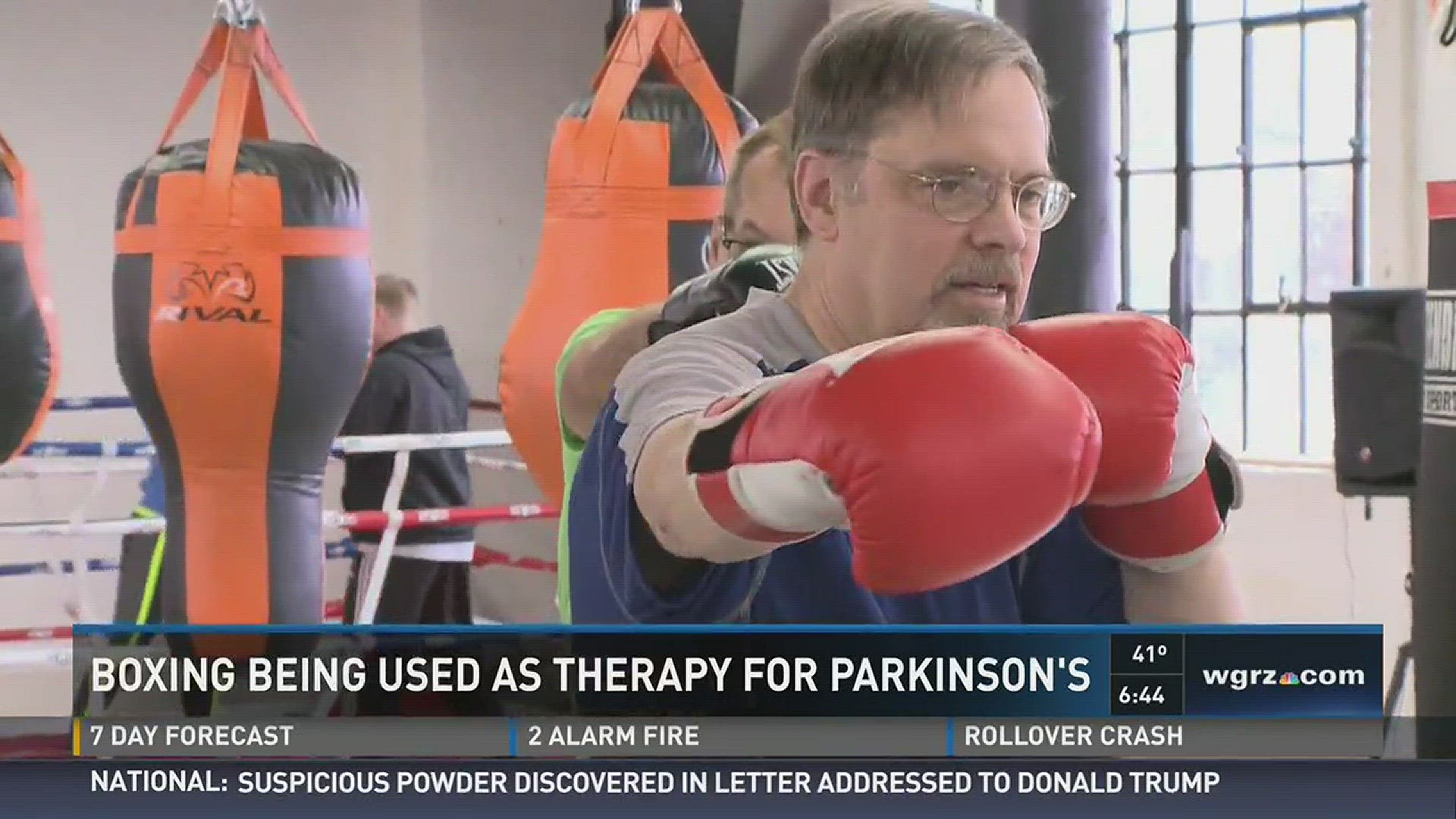BUFFALO, N.Y. - For many years, Norm Paolini has worked hard to help the less fortunate and spread the word of God as a co-founder of St. Luke's Mission of Mercy in the City of Buffalo. Now he is fighting to keep his own spirits up, as he battles Parkinson's Disease. "With me, it's not tripping on myself. Being able to stand upright, and not give in to the tremor that pulls you away."
And when I say "battle" I mean battle. Norm has taken up boxing as a means of fighting off the symptoms and progression of the disease. Sue Gilhooley is a lay minister at St Luke's. She has come along to help."When he's focused on that, there are no tremors. There's no shaking and he can focus right on that.and he's really concentrating and I can see that in other aspects of his life. "
There has been an on-going study into whether Parkinson's Disease can be caused by head trauma suffered in sports, such as boxing. One of the most famous boxers of all time, Muhammed Ali has Parkinson's and doctors say while they can't be sure of the link, they do believe that it was a contributing factor to the progression of the disease. So it may come as a surprise that more and more people with Parkinson's are actually finding relief through the sport of boxing.
Kevin Cunningham owns KC's Fitness in Buffalo. He is also an accomplished boxer and black belt in Akido. He says that he began using this approach by accident about 20 years ago. "One of my clients came to me and said is it too late for a 60-year-old guy to learn boxing? and I said no. He said well I have Parkinson's, is that a problem? And I said no."
Cunningham had heard of a program in Indianapolis called Rock-Steady that was having good results. So Kevin put together a program that focused on technique, concentration, weight transfer and balance. He drew on his martial arts background to teach his student how to safely fall as well. After 3 months of training, a major surprise, for Kevin, his client, and most notably his client's doctor. The doctor had just administered a routine mobility test and was shocked by the results. Kevin's client improved.
The Rock-Steady program experienced similar results, prompting several studies over the past two decades.
A 2012 study conducted by the Oregon Research Institute found that Parkinson's patients who did tai chi twice a week for six months had better balance and control over their movements than those who did weight training or stretching. Research at the Cleveland Clinic found Parkinson's patients who ride an exercise bike three times a week for two months at a pace fast enough to break a sweat can regain much of their lost mobility,
The key appears to be forced exercise rather than voluntary. What that means is pushing a person to exercise at a level higher than their comfort zone, using a trainer or a certain type of activity.
Researchers believe that exercise may be helping the brain to maintain old connections, form new ones and restore lost ones.
Cunningham puts it in much more simple terms. "The bottom line though is that when people do it they seem to show less symptoms and that's exciting and if it can keep the wolves away from the door a little bit longer, then that's a good thing."

